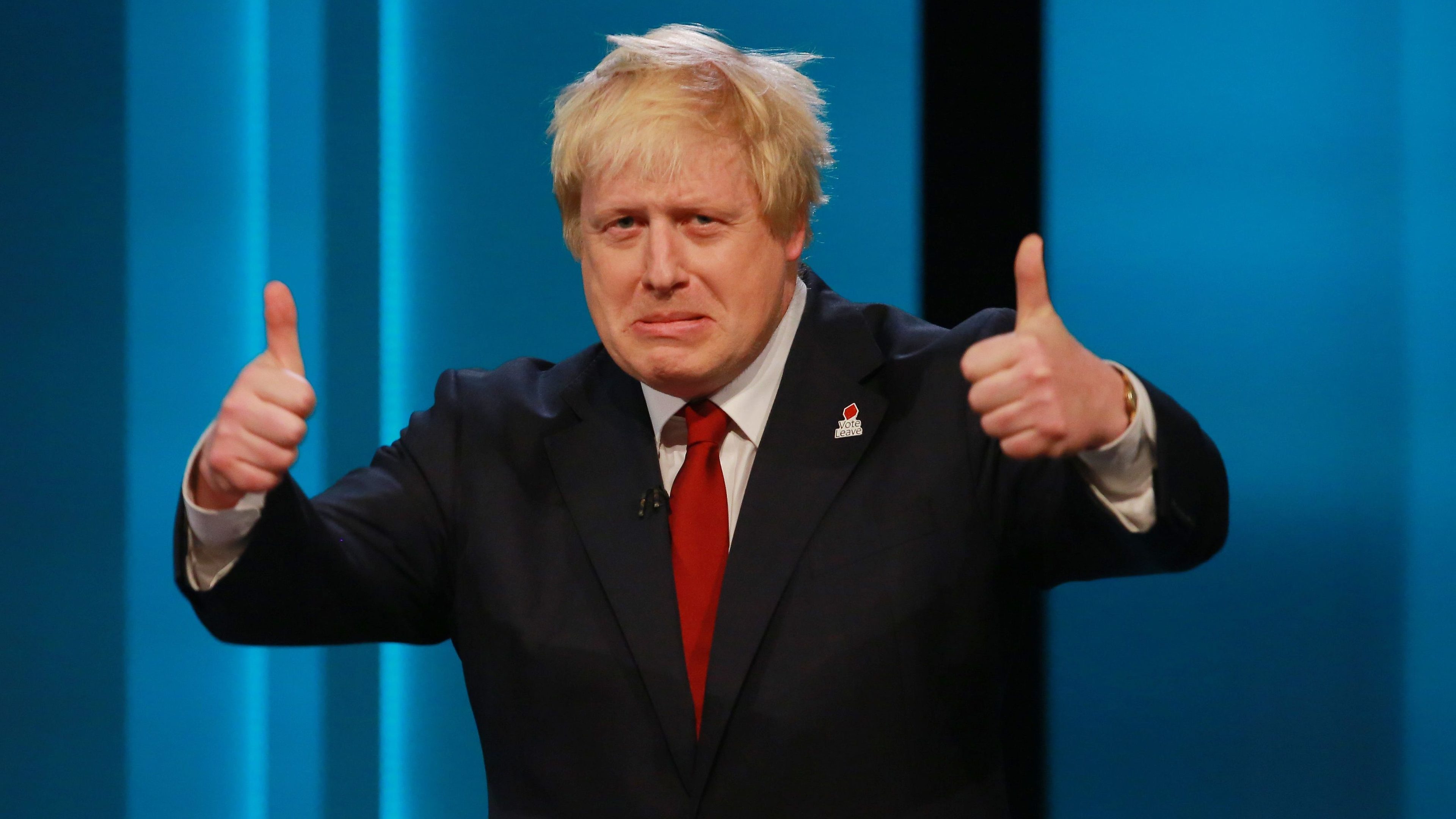Here comes the Brexit showdown. Like a crazed marching band contest, we have the Brussels Bugles in from the East, the London Loons from the South and from Cardiff and Edinburgh, the Peeved Pipers. They crisscross the parade ground of public opinion – all noise and fancy steps, vying for attention.
And there is Boris Johnson, a maverick pipe major, twirling his baton to a silent tune, followed by no one.
Timing is everything for bands, and for politicians, in this case, time is running out.
The tune that Brussels and the devolved capitals are playing is called “don’t blame us, you started it”.
The EU, Scotland and Wales understand a democratic vote took place and something must be done, but not what is being proposed. They feel, quite rightly, they are being asked to solve a mess they didn’t make.
The London Loons are playing an improvised ditty called “do what we say”. It’s not working for them in either Brussels or Edinburgh.
For anyone interested in changing a constitution, it pays to have a thorough knowledge of what you are dealing with. Brexiters seem to have had a flimsy knowledge of both their EU and the UK, ironically, coupled to an Oxbridge arrogance, which prevented them from seeing their error.
I am not writing about the many people who voted to leave the EU, who will have a range of motives, some perfectly legitimate and plausible.
Instead I refer to the marching band of pompous Tory figures who thought they could change the fate of a nation through bluff.
Brexit was billed as “taking back control”. However, the advocates of this slogan do not seem to have been aware of how their own country worked.
Since 1998 control has been shared across Westminster, the devolved London Assembly, Cardiff, Edinburgh and Belfast. It is a complicated, nuanced spread of power – but then the UK always was. The Brexiters seem to have missed devolution and assumed Westminster called all the tunes. Brexit springs from a delusional sense of power held by posh boy rabble-rousers.
This is what prompted a man few have heard of, David Lidington, to accuse Cardiff and Edinburgh of holding the UK to ransom over post-Brexit powers. Scotland and Wales want all the old-EU powers relating to devolved matters to go to the devolved parliaments. This represents a revolution in the authority of these two chambers. Lidington is horrified and wants Westminster to retain some control, and have a veto over the decisions of Holyrood and Cardiff.
But his recent battle cries against devolution didn’t rally the masses to his cause. This is because nothing is as alarming as the Brexit car crash, his point is relatively arcane for a UK audience and few have heard of him.
In this, Westminster pays a price for sending junior ministers to do work fundamental to the British state – though as noted, Brexiters hadn’t grasped this in advance.
To press their case Holyrood published a draft bill of its own devising, a parliamentary stunt intended to highlight it is not about to give up the principle of devolution.
The trouble with the Scottish Government moaning about everything Westminster does is that it can dull one to the genuine issues, and this is an important fight. Britain is a DIY state, cobbled together from history and democratic demand. Look at it too closely and it makes little coherent sense – but that’s not the point. It is the result of consent.
What Lidington and the Tory Government are trying to do is re-organise the DIY state by diktat.
Brexiters are absolutely right that their makeover version of Britain would be better suited to post-Brexit trade deals, but that’s not the point. What matters is they didn’t seek consent to change Britain, only to leave the EU.
The SNP government has been all over the place since the Brexit vote, but has finally found the essential cause – it is the cause not of Scotland, but of legitimacy within the UK. And it will succeed.
If the UK government pushes ahead with a Brexit bill abusing devolution, it will fail in the Commons. That would probably trigger the end of this Government – an outcome Downing Street will try to avoid.
Much more important to the Tories is holding the fractured alliance of pro-Brexit MPs together to get to the end of the negotiation with Brussels.
The EU this week published a draft of what it understands to be the Brexit settlement. It did so to show the world how much is yet to be done.
Britain will likely sign up to some form of Customs Union because Jeremy Corbyn has finally seen the political advantage in going for a soft Brexit. In a speech earlier this week he declared Labour for a Customs Union as the best investment for trade and jobs. Soon, Theresa May is expected to say something similar.
And so the bands go marching by, blowing trumpets and raspberries at each other.
The sum effect will be that Britain stumbles out of the EU with a deal which, in the words of one ex-mandarin this week, is like swapping a three-course meal for a packet of crisps. That is slightly rude to crisps.
